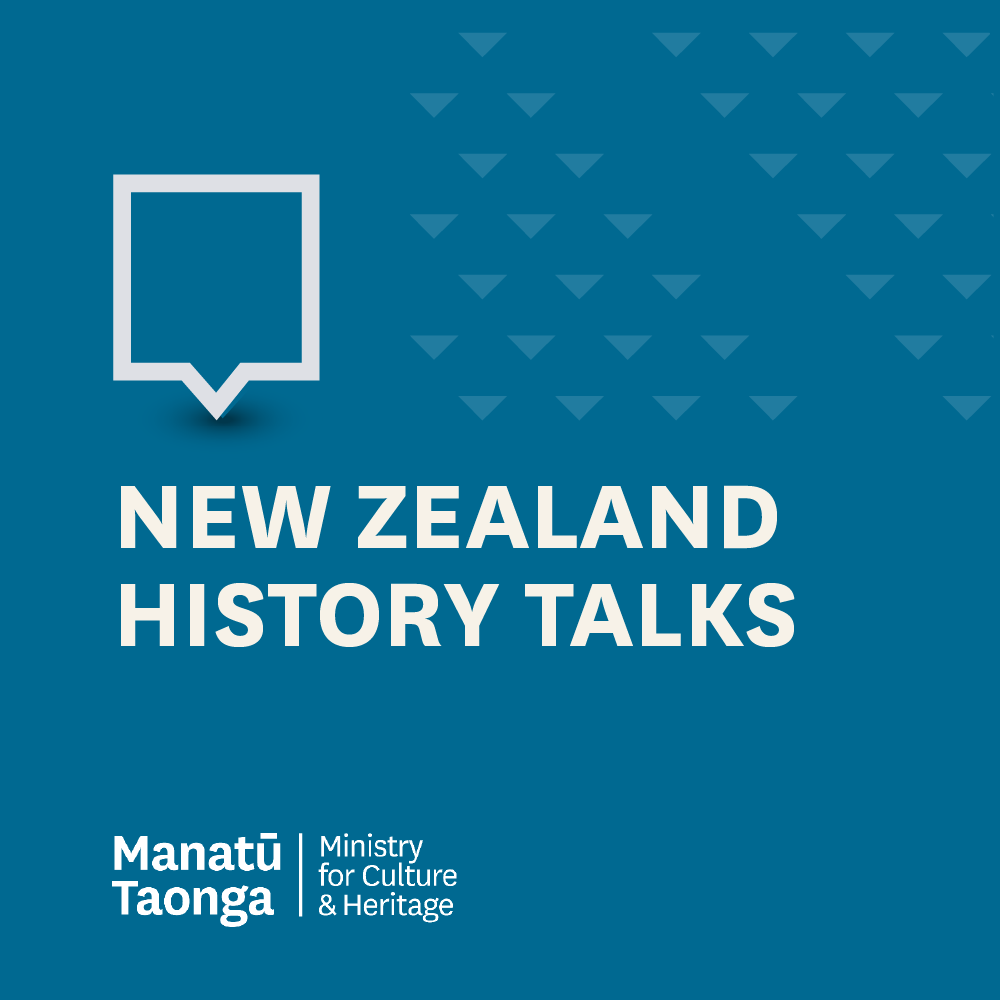Episodes

Friday Aug 08, 2025
Making ‘A Rather Queer Cuba Street’ with AI
Friday Aug 08, 2025
Friday Aug 08, 2025
On 6th August 2025 at National Library, Gareth Watkins and Dr Roger Smith from PrideNZ and Walk Tours NZ presented their work using off-the-shelf AI software to bring to life their oral history recordings of Cuba St, Wellington New Zealand.
Drawing on the PrideNZ archival audio collection, A Rather Queer Cuba Street was a site-based event that combined eye-witness audio clips, AI-generated human avatars, and live presentation to create an engaging, feature-rich historical experience.
From AI transcriptions of oral histories to AI-assisted identification of engaging quotations from long-form interviews, and the creation of video elements featuring AI human avatars.
Gareth Watkins is the founder and editor of PrideNZ. He, along with Roger Smith, co-founded Walk Tours NZ in 2017 – offering free community LGBTIQ+ walk tours around Wellington. Dr Roger Smith is also a contributor to PrideNZ and a past Trustee of the Lesbian and Gay Archives of New Zealand (now Kawe Mahara).
Download a transcript of this talk (PDF)
Download slides used for this talk (PDF)
A video of the full talk is available on YouTube
Note some of the audio played during the recording process does not always sound as good in our playback, we apologise for this.
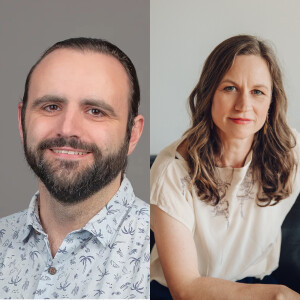
Friday Jun 06, 2025
Rewind: The Craft of Historical Storytelling in Podcasts
Friday Jun 06, 2025
Friday Jun 06, 2025
In this Public History Talk recorded at the National Library on 4 June 2025, podcast producers William Ray (RNZ) and Kirsten Johnstone (Popsock Media) explored the art of creating captivating history podcasts, sharing storytelling and audio techniques from series like Black Sheep, The Lake, The Aotearoa History Show, Te Rauparaha Kei Wareware and The Magpie House.
They discussed the delicate balance of distilling complex history for an engaging auditory experience, using sound design and music to enhance storytelling, and offered insider tips and tricks from their award-winning work.
About the speakers
Kirsten Johnstone (Ngāi Tahu / Pākehā) co-founded award winning podcast production company Popsock Media in 2020. She honed her craft as a producer, editor, host, and content creator at RNZ.
William Ray (Pākehā) is an award-winning podcast producer at RNZ. He primarily works on history programming including Black Sheep and the Aotearoa History Show.
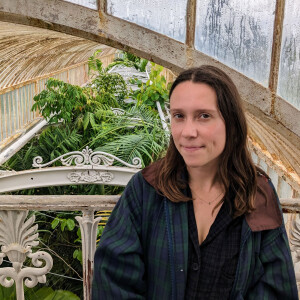
Wednesday Mar 26, 2025
The financial colonisation of Aotearoa
Wednesday Mar 26, 2025
Wednesday Mar 26, 2025
In this podcast, Catherine Comyn reframes the financial colonisation of Aotearoa — a history of the joint stock company, a speculative London property market that romanticised the distant lands of indigenous peoples, and the calculated use of credit and taxation by the British to dispossess Māori of their land and subject them to colonial rule.
Finance was at the centre of every stage of the colonisation of Aotearoa, from the sale of Māori lands and the emigration of early colonists to the founding of settler nationhood and the enforcement of colonial governance.
Catherine’s Ockham-longlisted book, The Financial Colonisation of Aotearoa (ESRA, 2023), has been hailed by Jane Kelsey as “the most stimulating book I have read on the colonisation of Aotearoa from the exciting new generation of scholars”.
Catherine tells the story of the financial instruments and imperatives that drove the British colonial project in the 19th century. By illuminating the centrality of finance in the colonisation of Aotearoa, Catherine not only reframes the understanding of this country's history, but also the stakes of anti-colonial struggle today.
Catherine Comyn (Ngāti Ranginui, Pākehā) is a PhD candidate in International Political Economy at King's College London. Her research focuses on finance capital and colonisation, and possibilities for their overcoming.
The talk was recorded live at the National Library of New Zealand on 28 May 2024, as part of the Public History Talks series, a collaboration between the Alexander Turnbull Library and Manatū Taonga Ministry for Culture and Heritage.
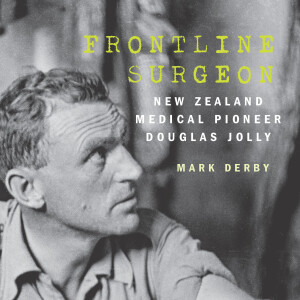
Wednesday Feb 26, 2025
The pain in Spain: Writing Spanish Civil War history in Aotearoa
Wednesday Feb 26, 2025
Wednesday Feb 26, 2025
In this podcast, Mark Derby talks about his recent book Frontline Surgeon: New Zealand Medical Pioneer Douglas Jolly, published by Massey University Press/University of Nebraska Press. Frontline Surgeon and related publications record New Zealand’s response to the Spanish Civil War, and its present-day significance.
Central Otago-born doctor, Doug Jolly, pioneered mobile emergency surgery during the Spanish Civil War. His surgical manual, based on battlefield experiences close to the front line, was widely used in later conflicts. Mark makes a case for Dr Jolly to be recognised as one of the most influential medical figures of the 20th century.
Frontline Surgeon is part of a long-running, unplanned, and ongoing project to record New Zealand's response to the Spanish Civil War and its present-day significance. The project began in 2006 when Mark edited a book of seminar papers — Kiwi Compañeros: New Zealand and the Spanish Civil War (ed. Mark Derby, Canterbury University Press, 2009.) This appeared in a Spanish translation as Compañeros Kiwis — Nueva Zealanda y la Guerra Civil Espanola (University of Castilla- La Mancha, 2011).
Mark later discovered a cache of letters by Christchurch nurse Dorothy Morris in the Alexander Turnbull Library. This resulted in a full-length biography, Petals and Bullets: Dorothy Morris, New Zealand Nurse in the Spanish Civil War (Potton and Burton Publishing / Leeds University Press, 2015.)
Mark has also written about this history for the Virtual Museum of the Spanish Civil War, a Te Ara-like online resource. The British publisher Bloomsbury has been recently contracted to publish a book based on the Virtual Museum’s content.
In this talk, Mark speaks about these inter-related projects, and how they were produced.
Virtual Museum of the Spanish Civil War
The talk was recorded live at the National Library of New Zealand on 7 August 2024, as part of the Public History Talks series, a collaboration between the Alexander Turnbull Library and Manatū Taonga Ministry for Culture and Heritage.
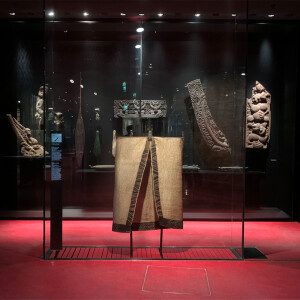
Thursday Dec 05, 2024
Whakarongo ki ngā Taonga Tuku Iho: Listening to Taonga Held in French Museums
Thursday Dec 05, 2024
Thursday Dec 05, 2024
Dr Lisa Renard has a Ph.D. in Social and Cultural Anthropology / Museum Studies Docteure en anthropologie sociale et culturelle / Muséographe and is currently the Fyssen Postdoctoral Researcher at The University of Auckland. This talk was presented at the Stout Centre for New Zealand Studies at Te Herenga Waka, Victoria University of Wellington on 3 April 2024.
In France, the majority of the Māori taonga are housed at the Musée du quai Branly - Jacques Chirac in Paris, where 268 taonga are registered in the collections of the museum. Based on previous research conducted during Dr Renard’s M.A. and Ph.D. at the University of Strasbourg, France, she found that the oldest taonga in French museums travelled from Aotearoa to France in the late 18th and first half of the 19th centuries.
For many years, Māori specialists across Aotearoa have sought to access more information about taonga in museums around the world. Dr Renard’s postdoctoral research is intended to help meet these needs and to demonstrate the richness of the taonga tuku iho biographies and agencies, particularly in terms of their mnemonic qualities, when reunited with the tangata whenua of Aotearoa and other taonga tuku iho.
This paper presents the state of Dr Renard’s research in relation to 4 kākahu, 2 hei tiki, 3 taonga pūoro, and 1 Rākau atua associated with the voyage of French explorer Jules César Sébastien Dumont d’Urville on board l’Astrolabe in 1827.
Due to cultural considerations related to the taonga, this is an audio only podcast with transcription provided for accessibility purposes.
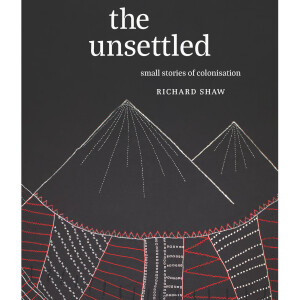
Tuesday Sep 24, 2024
Small stories of colonisation: An uncomfortable settler family history
Tuesday Sep 24, 2024
Tuesday Sep 24, 2024
In this podcast, Professor Richard Shaw whose great-grandfather took part in the 1881 invasion of Parihaka pā and farmed land taken from Taranaki iwi, discusses the entanglement of the small histories of settler families with the large history of the colonisation of Aotearoa New Zealand.
On the morning of 5 November 1881, an Irishman called Andrew Gilhooly formed up alongside other members of the Armed Constabulary at the entrance to Parihaka pā. He was there for the invasion, the occupation and — much later — for the farming of land taken from Taranaki iwi. But those events dropped out of the family stories handed down to Gilhooly’s descendants.
In this presentation, Richard Shaw, one of those descendants, explores the possible reasons for and purposes of this historical amnesia, and discusses the entanglement of the small histories of settler families with the large history of the colonisation of Aotearoa New Zealand. He also discusses his book, The Unsettled: Small Stories of Colonisation (MUP, 2024), which features stories shared by New Zealanders who are trying to figure out how to live well with their own pasts, their presents and their possible futures explores the layered histories embedded in three landscapes in the city.
Richard Shaw is a professor of politics at Massey University, where he teaches New Zealand politics and undertakes research on political advisers in the executive branch of government. His publications include The Edward Elgar Handbook on Ministerial and Political Advisers (2023) and Core Executives in a Comparative Context (with K. Koltveitt, 2022). His work has been published in journals such as Governance, Public Administration, Parliamentary Affairs, and Public Management Review. He is also the author of two books that address matters of memory and forgetting amongst settler families in Aotearoa New Zealand — The Forgotten Coast (2021) and The Unsettled: Small Stories of Colonisation (2024) — both published by Massey University Press.
The talk was recorded live at the National Library of New Zealand on 1 May 2024, as part of the Public History Talks series, a collaboration between the Alexander Turnbull Library and Manatū Taonga Ministry for Culture and Heritage.
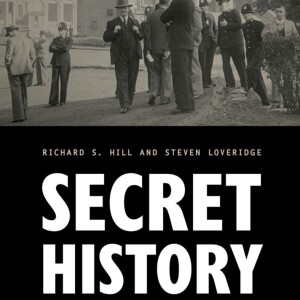
Wednesday Nov 15, 2023
An Open Conversation on a Secret History
Wednesday Nov 15, 2023
Wednesday Nov 15, 2023
The new book Secret History: State Surveillance in New Zealand, 1900-1956 by Richard S Hill and Steven Loveridge (Auckland University Press, 2023) opens up the ‘secret world’ of security intelligence during a period in which counter-espionage and counter-subversion duties were primarily handled by the New Zealand Police Force.
This is the first of two volumes chronicling the history of state surveillance in New Zealand. It is the story of the surveillers who – in times of war and peace, turmoil and tranquillity – monitored and analysed perceived threats to national interests. It is also the story of the surveilled: those whose association with organisations and movements led to their public and private lives being documented in secret files. Secret History explores a hidden and intriguing dimension of New Zealand history, one which sits uneasily with cherished national notions of an exceptionally fair and open society.
At this session, recorded at the Stout Research Centre for New Zealand Studies at Te Herenga Waka - Victoria University of Wellington in October 2023, the authors discussed the book’s revelations, methodology and implications with Malcolm McKinnon. This was followed by a Q and A session with the audience.
Speakers:
Richard S. Hill is an Emeritus Professor at the Stout Research Centre. Among his outputs are four books in the History of Policing in New Zealand series, and two on Crown-Māori relations in the twentieth century. His co-authored book, Secret History, is the first of two volumes in a history of security intelligence in twentieth-century New Zealand.
Steven Loveridge is an adjunct Research Associate at the Stout Research Centre. His published work includes some major studies of New Zealand society during the First World War, and work on diplomatic history and security intelligence. He is currently co-authoring the second volume in the history of security intelligence in twentieth-century New Zealand which will cover the 1956-2000 period.
Malcolm McKinnon is an adjunct research associate in the School of History, Philosophy, Political Science and International Relations at Victoria University of Wellington Te Herenga Waka. He is the author of a number of works on the history of both New Zealand's foreign relations and its political economy.
Download a transcript of this talk: https://nzhistory.govt.nz/files/pdfs/secret-history-public-history-talk.pdf

Friday Oct 27, 2023
Prison Labour and the Making of New Zealand’: Jared Davidson
Friday Oct 27, 2023
Friday Oct 27, 2023
Forced labour haunts the streets we walk today and the spaces we take for granted. From 1814 onwards, the unfree work of prisoners was used to forge roads, ports, buildings, harbour defences and other public works across New Zealand and its Pacific empire. Prisoners planted forests, cleared land and laboured on dairy farms. Their work was crucial to colonisation. Yet convict Australia and the myth of New Zealand exceptionalism has meant the history of prison labour has been largely overlooked.
In this Public History Talk, Jared Davidson discussed his latest book, Blood and Dirt: Prison Labour and the Making of New Zealand (Bridget Williams Books, 2023). He charted the hidden history of prison labour across New Zealand's urban and rural landscapes and into the Pacific, as well the challenges of researching history from the bottom up.
Jared Davidson is an archivist by day and an author by night, based in Lower Hutt. He is currently the Research Librarian Manuscripts at the Alexander Turnbull Library. Blood and Dirt is his fifth book.
These free Public History Talks are a collaboration between the Alexander Turnbull Library and Manatū Taonga Ministry for Culture and Heritage. They are usually held on the first Wednesday of the month March to November.
Download a transcript of this talk: https://nzhistory.govt.nz/files/pdfs/jared-davidson-transcript.pdf
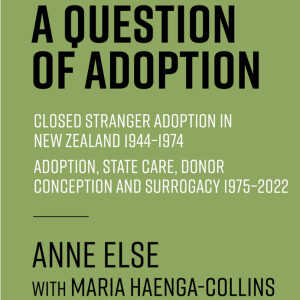
Wednesday Sep 20, 2023
Adoption: From severance and secrecy to connection and openness
Wednesday Sep 20, 2023
Wednesday Sep 20, 2023
In this month's Public History Talk, the authors of two recently published books discussed the profound impact of closed stranger adoption in New Zealand and the drive for change. Closed stranger adoption under the 1955 Adoption Act, still in force today, has deeply affected thousands of New Zealanders.
In their recent book Adopted: Loss, love, family and reunion (Massey University Press, 2022), Jo Willis and Brigs (Brigitta) Baker shared the complexity of their reunion journeys, the emotional challenges they faced, and the ongoing impacts of their adoptions, with candour and courage. The stories of their birthparents, partners and children and the physical and emotional toll of adoption on them are also heard. Jo Wills joined us for this Public History Talk.
Anne Else and Maria Haenga-Collins’ comprehensive new eBook is A Question of Adoption: Closed Stranger Adoption in New Zealand 1944–1974 and Adoption, State Care, Donor Conception and Surrogacy 1975–2022 (Bridget Williams Books, 2023). It combines Anne’s original 1991 post-war adoption history with seven new chapters giving up-to-date accounts of state care, donor conception and surrogacy, alongside the ongoing story of adoption. Anne joined us for this talk.
The conversation was led by Professor Bill Atkin, recently retired from Te Herenga Waka Victoria University of Wellington Law School.
It was recorded live at the National Library of New Zealand on 28 August 2023. Some questions were submitted by audience members, and others were submitted online and read out by a staff member.
These free Public History Talks are a collaboration between the Alexander Turnbull Library and Manatū Taonga Ministry for Culture and Heritage.
Download a transcript of this talk: https://nzhistory.govt.nz/files/pdfs/adoption-panel-transcription.pdf
An explanation of the changing legislation which governed closed adoption records in New Zealand was provided by Anne Else, and is available here: https://nzhistory.govt.nz/files/pdfs/anne-else-closed-adoption-records.pdf
---
If you have questions about closed adoption, these organisations can help:
Adoption NZ is a support organisastion which provides advice for those impacted by adoption, including links to support groups, professional support, and advice about how to find records.
Adoption New Zealand
Community Law provides free legal help throughout New Zealand, and provides information about how to find adoption records.
Community Law Manual: Adoption
Oranga Tamariki, the Ministry for Children, provides information and support around finding your birth family.
Oranga Tamariki: Finding your birth family
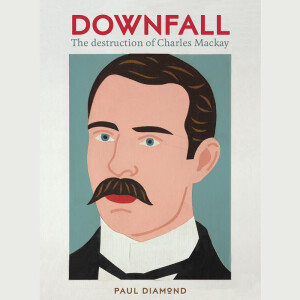
Thursday Sep 07, 2023
Downfall: The destruction of Charles Mackay
Thursday Sep 07, 2023
Thursday Sep 07, 2023
Paul Diamond's book, Downfall: The destruction of Charles Mackay, examines the startling ‘Whanganui Affair’ of 1920, when the mayor Charles Mackay, shot a young gay man, D'Arcy Cresswell. The affair and subsequent events reveal the perilous existence of homosexual men at that time and how society conspired to control and punish them.
In 1920 New Zealanders were shocked by the news that the brilliant, well-connected mayor of Whanganui had shot a young gay poet, D'Arcy Cresswell, who was blackmailing him. They were then riveted by the trial that followed. Mackay was sentenced to hard labour and later left the country, only to be shot by a police sniper during street unrest in Berlin during the rise of the Nazis. Mackay had married into Whanganui high society, and the story has long been the town’s dark secret.
The outcome of years of digging by historian Paul Diamond, Downfall: The destruction of Charles Mackay shines a clear light on the vengeful impulses behind the blackmail and Mackay’s ruination. At its heart, the Mackay affair reveals the perilous existence of homosexual men at that time and how society conspired to control and punish them.
We recommend that you watch this presentation if you can on YouTube, so that you can see the images Paul discussed in his talk.
Downfall: the destruction of Charles Mackay (YouTube)
Since Paul gave this talk in December 2022, Duigan’s Buildings, in Whanganui, where the shooting took place, have been listed by Heritage New Zealand as a Category 1 History Place.
Duigan's Buildings (Heritage New Zealand)
This presentation was made at the National Library in December 2022.
Paul Diamond (Ngāti Hauā, Te Rarawa, Ngāpuhi) has been Curator Māori, at the Alexander Turnbull Library since 2011. A journalist and broadcaster he is also the author of A Fire in Your Belly: Māori Leaders Speak (Huia, 2003), Makereti: taking Māori to the world (Random House, 2007) and Savaged to suit: Māori and cartooning in New Zealand (NZ Cartoon Archive, 2018). His latest book Downfall: The destruction of Charles Mackay was published by Massey University Press in November 2022.
Download a transcript of this talk: https://nzhistory.govt.nz/files/pdfs/paul-diamond-pht-transcript-2022-12-12.pdf
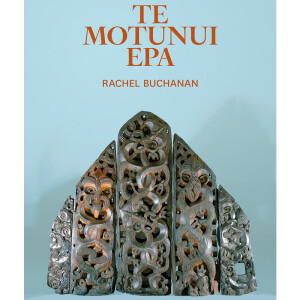
Friday Aug 18, 2023
Te Motunui Epa – making history from the underground
Friday Aug 18, 2023
Friday Aug 18, 2023
For more than 150 years, five carved panels that once formed the back wall of a pātaka, slept in a small swamp just north of Waitara. The carvings, which uri of Taranaki now call the Motunui Epa, emerged from their long sleep in 1971 setting off an extraordinary chain of events that would take them around the world and back again.
In this talk, Dr Rachel Buchanan will discuss how unearthing the government records has changed the way she works as a historian, taking her much closer to the power of the underground and the sovereignty that exists, undiminished beneath our feet. This work resulted in her book Te Motunui Epa (BWB Books, 2022).
This talk was recorded on 15 May 2023 at the National Library of New Zealand Te Puna Mātauranga o Aotearoa.
Dr Rachel Buchanan (Taranaki, Te Ātiawa) is the author of three books that explore Taranaki histories, including the invasion of Parihaka. Her new book, Te Motunui Epa (BWB Books, 2022), was shortlisted for the 2023 Ockham New Zealand Book Awards in the illustrated non-fiction category. Along with Hana Buchanan and Debbie Broughton, Rachel is also member of Te Aro Pā poets. A former journalist, Rachel has also documented the collapse of newspapers in the history-memoir, Stop Press: the last days of newspapers.
Download a transcript of this talk: https://nzhistory.govt.nz/files/pdfs/new-lenses-history-talk-rachel-buchanan-transcript.pdf
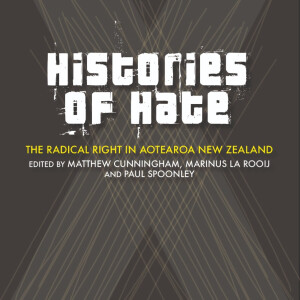
Friday Jul 28, 2023
‘An overview of New Zealand’s radical right tradition’: Matthew Cunningham
Friday Jul 28, 2023
Friday Jul 28, 2023
In seeking to understand the terrorist attacks of March 2019, several commentators observed the similarities with the murder of an elderly Chinese man named Joe Kum Yung by Lionel Terry in 1905. It is tempting to draw a direct causal line between the two attacks, both as a concise way of framing an uncomfortable subject and as an emotional salve against the possibility that New Zealand’s radical right tradition is more than the occasional ‘lone wolf’. But this obscures far more than it explains.
In this talk, historian Matthew Cunningham explores some of the many threads of New Zealand’s diverse radical right tradition between the murder of Joe Kum Yung and the rise of identitarianism and the alt-right. Drawing on his recent co-edited book, Histories of Hate, this talk suggests that the radical right is a diverse mix of ideas, ideologues, organisations, social clubs and political parties animated by different combinations of ideas in different ways and at different times. It also draws out some common themes across this disparate tradition in terms of ideology, structure, and political behaviour.
Matthew Cunningham is an independent historian residing in Wellington, New Zealand. He has a diverse publication history, including books, edited collections, oral histories, peer-reviewed journal articles, Waitangi Tribunal commissioned research reports, Marine and Coastal Area reports, public history articles, and journalistic and general interest pieces. He is also a published children author.
Download a transcript of this talk: https://nzhistory.govt.nz/files/pdfs/transcript-matthew-cunningham-pht.pdf
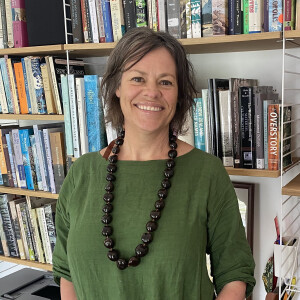
Friday Jul 07, 2023
Archives in Place: Deep Histories in Tāmaki Makaurau Auckland
Friday Jul 07, 2023
Friday Jul 07, 2023
In this podcast, Dr Lucy Mackintosh discusses aspects of her recently published book, Shifting Grounds: Deep Histories of Tāmaki Makaurau Auckland (Bridget Williams Books, 2021), which explores the layered histories embedded in three landscapes in the city. Starting with rocks, lava flows, a grassy paddock, the remains of a garden, the site of a cottage, or a monument, the book examines the histories that unfolded in these places and connects them with the broader historical context of the city, the nation and the world. Lucy’s talk considers how histories told from particular places, at particular moments of time, opens up new stories and perspectives that can change the way we currently tend to think about the past and the present in urban spaces.
Dr Lucy Mackintosh is a Senior Research Fellow, and formerly Curator of History, at Auckland War Memorial Museum. Her debut book Shifting Grounds: Deep Histories of Tāmaki Makaurau Auckland, drew extensively on the collections of the Alexander Turnbull library and other archives throughout New Zealand. The book was awarded the Ernest Scott Prize for History (co-winner), the ARANZ Ian Wards Prize and the NZSA Heritage Book Award for Non-Fiction in 2022.
The talk was recorded live at the National Library of New Zealand on 1 March 2023, as part of the Public History Talks series, a collaboration between the Alexander Turnbull Library and Manatū Taonga Ministry for Culture and Heritage.
Download a transcript of this talk: https://nzhistory.govt.nz/files/pdfs/lucy-mackintosh-talk transcript-2023.pdf
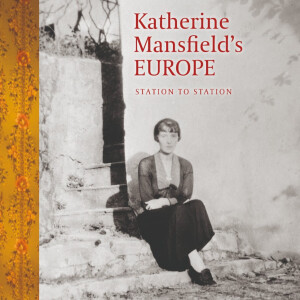
Tuesday Jun 27, 2023
Tuesday Jun 27, 2023
Katherine Mansfield was a New Zealand author of international renown. Her short stories and poetry have been translated into more than 25 languages and her work continues to have an impact one hundred years after her death in France in 1923.
Mansfield spent most of her adult life in Europe, working as a writer, editor, and critic, and living in various places, moving as fortune and misfortune decreed.
Author Redmer Yska follows these movements in his new book, Katherine Mansfield's Europe: Station to Station. Using Mansfield’s letters and diaries as guides, he travels through Germany, France and Switzerland to the villas, pensions, hotels, spas, railway stations, churches, towns, beaches and cities where Mansfield wrote some of her finest stories.
In this Public History Talk, recorded live in June 2023, Cherie Jacobson, Director of Katherine Mansfield House & Garden, interviewed Redmer about his new book.
These monthly Public History Talks are a collaboration between the Alexander Turnbull Library and Manatū Taonga Ministry for Culture and Heritage.
Download a transcript of this talk: https://nzhistory.govt.nz/files/pdfs/redmer-yska-and-cherie-jacobson-public-history-talk-june-2023.pdf
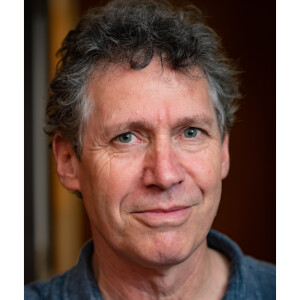
Wednesday Jun 21, 2023
Musicians, Myths and Manifestos
Wednesday Jun 21, 2023
Wednesday Jun 21, 2023
What can popular music tell us about a country and its culture?
As the 2023 Lilburn Research Fellow, Nick Bollinger is looking at ways in which pop music in Aotearoa New Zealand has reflected, contradicted, and contributed to our national stories. In this talk he will offer a progress report on a few of his discoveries.
These monthly Public History Talks are a collaboration between the Alexander Turnbull Library and Manatū Taonga Ministry for Culture and Heritage. Recorded live on 3 May 2023.
Download a transcript of this talk: https://nzhistory.govt.nz/files/pdfs/nick-bollinger-transcript-may-2023.pdf

Wednesday Jun 14, 2023
Solidarity and the Right to Strike
Wednesday Jun 14, 2023
Wednesday Jun 14, 2023
Cybèle Locke’s recently published biography of Bill Andersen, Comrade, examines labour activism, communism and social change, from the 1930s until the turn of the twenty-first century. This talk offers possibilities for how Bill Andersen’s Communist, working-class life might speak to us in the current moment.
These monthly Public History Talks are a collaboration between the Alexander Turnbull Library and Manatū Taonga Ministry for Culture and Heritage. Recorded live on 5 April 2023.
Download a transcript of this talk: https://nzhistory.govt.nz/files/pdfs/solidarity-and-the-right-to-strike-transcript.pdf
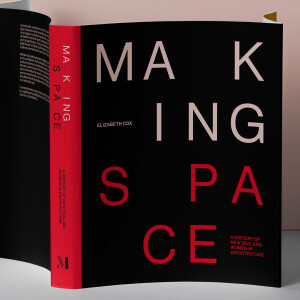
Wednesday Dec 14, 2022
Making Space: A history of New Zealand women in architecture
Wednesday Dec 14, 2022
Wednesday Dec 14, 2022
Brilliant, hardworking and creative, women architects have made many significant contributions to the built environment, creativity and community of Aotearoa New Zealand. A ground-breaking new book, Making Space, tells the story of women making space for themselves in a male-dominated profession while designing architectural, landscape and urban spaces over a century.
Edited by Elizabeth Cox and written by 30 women architects, architectural historians and academics, the book’s bold, vivid chapters shine light on hundreds of remarkable women, including many whose careers have until now been lost to the historical record.
Elizabeth and authors Divya Purushotham and Mary-Jane Duffy discuss the many challenges and triumphs of women architects in Aotearoa.
These monthly Public History Talks are a collaboration between the Alexander Turnbull Library and Manatū Taonga Ministry for Culture and Heritage. Recorded live on 2 November 2022.
Download a transcript of this talk: https://nzhistory.govt.nz/files/pdfs/making-space-transcript.pdf
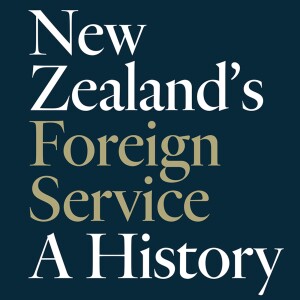
Thursday Dec 01, 2022
New Zealand’s Foreign Service: A History
Thursday Dec 01, 2022
Thursday Dec 01, 2022
The Ministry of Foreign Affairs (MFAT) is a remarkable organisation that has represented New Zealand for more than 75 years.
A new book, New Zealand’s Foreign Service: A History examines how MFAT (and its predecessors) responded to ever-evolving political and military allegiances, trade globalisation, economic threats, natural disasters and military conflict on behalf of a small nation that seeks to engage on the global stage while maintaining the principles that underpin its political institutions.
Commissioning editor Ian McGibbon and two of the authors Steven Loveridge and Anita Perkins will discuss what is distinctive about MFAT's approach to diplomacy in New Zealand and globally, and reflect on the process of researching and writing the book. Facilitated by Malcolm McKinnon.
These monthly Public History Talks are a collaboration between the Alexander Turnbull Library and Manatū Taonga Ministry for Culture and Heritage. Recorded live on 12 October 2022.
Download a transcript of this talk: https://nzhistory.govt.nz/files/pdfs/transcript-mfat-pht-2022-10-12.pdf
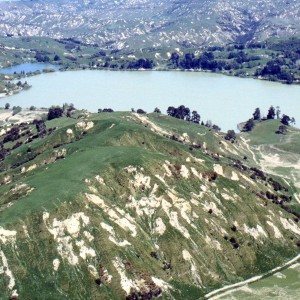
Wednesday Oct 26, 2022
A Biography of Lake Tūtira
Wednesday Oct 26, 2022
Wednesday Oct 26, 2022
This talk sketches Lake Tūtira’s history from formation to today. Historian Jonathan West will follow in the traces of Herbert Guthrie Smith, whose obsessive records of the changes witnessed while farming by the lake made him the founder of environmental history here. He will take his cue from Guthrie Smith’s first book’s opening lines: ‘The lake on Tutira may be considered the heart of the run. It is the centre of all the station’s life and energy.’ Guthrie Smith preserved the lake as a sanctuary for his beloved birds.
But since the 1950s Lake Tūtira has faced problems – now posed much more widely – of invasive weeds, nutrient pollution, poisonous algal blooms, and mass fish kills. Jonathan will conclude considering the lessons its history provides for our future.
These monthly Public History Talks are a collaboration between the Alexander Turnbull Library and Manatū Taonga Ministry for Culture and Heritage. Recorded live on 6 July 2021.
Download a transcript of this talk:
https://nzhistory.govt.nz/files/pdfs/transcript-jonathan-west-2022.pdf
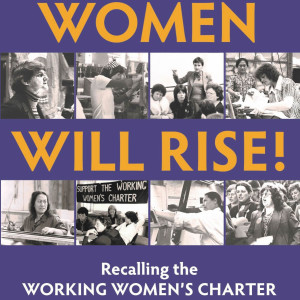
Wednesday Oct 12, 2022
Women Will Rise! Recalling the Working Women’s Charter
Wednesday Oct 12, 2022
Wednesday Oct 12, 2022
It's over 40 years since the Working Women's Charter was adopted as policy by the New Zealand Federation of Labour. The 16-clause Charter demanded rights for women in all aspects of life and work, including equal pay; ending discrimination; education and health rights; improved working conditions; quality child care; family and parental leave, and reproductive rights. But persuading the male-dominated trade union movement to adopt the Charter wasn't an easy job.
A panel of authors from the book Women Will Rise will trace the earlier working women's charters in New Zealand, and the work and organising done by trade union women and their supporters to achieve the Charter. Finally, a feminist historian of the generation following the 1970s Charter women reflects on their work. Songs from the period are included.
The speakers are among 11 co-authors of the book Women Will Rise! Recalling the Working Women's Charter:
- Sue Kedgley is a women’s advocate, author of a recent memoir Fifty Years a Feminist, and a former Green MP.
- Hazel Armstrong worked for women's liberation and unions. She is a lawyer specialising in health, safety and ACC work.
- Therese O'Connell has been active (and singing) in unions and other social justice movements.
- Grace Millar is a feminist, unionist and historian, currently working for the Public Service Association.
These monthly Public History Talks are a collaboration between the Alexander Turnbull Library and Manatū Taonga Ministry for Culture and Heritage. Recorded live on 3 October 2021.
Download a transcript of this talk:
https://nzhistory.govt.nz/files/pdfs/transcript-women-will-rise-2022.pdf

